The Sunshine State’s homeowners associations face unique insurance challenges that require comprehensive solutions. Florida’s HOAs must navigate a complex insurance landscape to protect their communities from various risks.
As a homeowner in a Florida community association, understanding HOA insurance is crucial. It’s essential to recognize that HOA insurance is not the same as individual homeowners insurance. While homeowners insurance covers personal property and liability, HOA insurance protects the association’s common areas and interests.
The current insurance market in Florida presents several challenges for HOAs, including rising costs and changing coverage requirements. Proper insurance coverage is vital to protect both the association’s assets and individual homeowners from potential financial losses.
A comprehensive HOA insurance solution should include several key components. These may encompass property and general liability coverage, directors and officers insurance, and fidelity bond and crime insurance. Understanding these components is essential for Florida HOAs to ensure they have adequate protection.
In the following sections, we’ll delve deeper into the world of HOA insurance in Florida, exploring the current state of the insurance market, essential types of insurance coverage, Florida-specific requirements, factors affecting insurance costs, and how to select the right insurance provider.
Understanding HOA Insurance in Florida
With numerous insurance carriers exiting Florida, HOAs are facing unprecedented challenges in securing affordable coverage. The state’s insurance market is in crisis mode due to capacity issues, with over 10 carriers leaving in recent years. Recent legislation, such as tort reform, aims to attract more carriers, but until then, Florida HOAs will continue to face historically high insurance rates.
The Current State of Florida’s HOA Insurance Market
The Florida HOA insurance market is characterized by rising costs and decreasing availability. Natural disasters have significantly impacted the state’s insurance landscape, making it challenging for HOAs to find affordable coverage. Recent legislative changes have also affected insurance availability and pricing.
The current market conditions can be summarized as follows:
| Market Condition | Description | Impact on HOAs |
|---|---|---|
| Capacity Issue | Many insurance carriers have exited the Florida market. | Reduced availability of insurance coverage. |
| Rising Costs | Increased insurance rates due to natural disasters and legislative changes. | Higher premiums for HOAs. |
| Legislative Changes | Tort reform and other legislation aimed at stabilizing the market. | Potential for improved insurance availability and pricing in the future. |
HOA Insurance vs. Homeowners Insurance: Key Differences
It’s essential to understand the differences between HOA insurance and individual homeowners insurance. HOA insurance typically covers common areas, shared structures, and liability, while individual homeowners insurance covers personal property, interior finishes, and liability.
The key differences between the two types of insurance are highlighted in the following table:
| Coverage Type | HOA Insurance | Homeowners Insurance |
|---|---|---|
| Common Areas | Covers common areas and shared structures. | Does not cover common areas. |
| Personal Property | Does not cover personal property. | Covers personal property and interior finishes. |
| Liability | Covers liability for the association. | Covers liability for individual homeowners. |
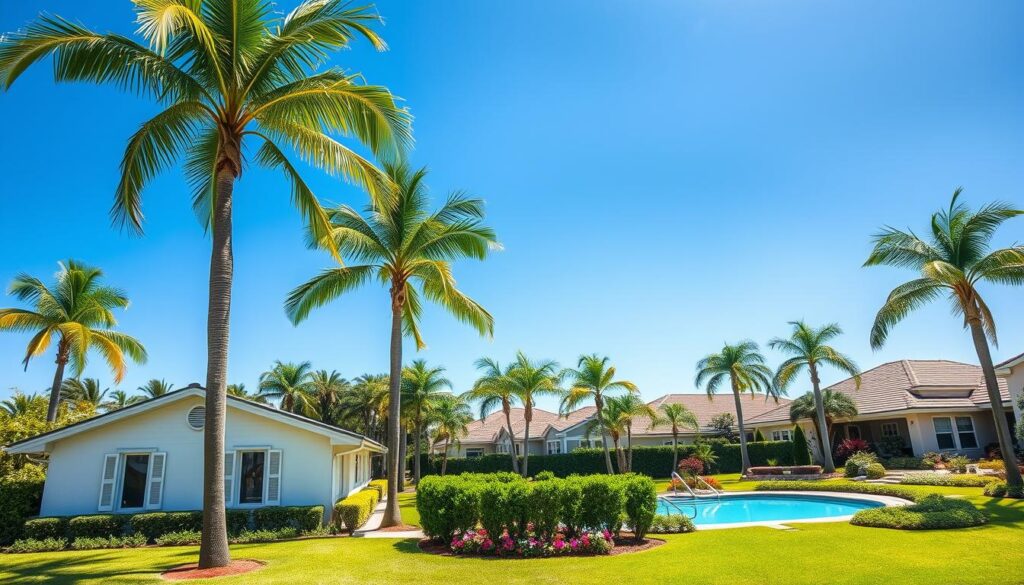
Essential Types of HOA Insurance Florida Communities Need
For Florida HOAs, having the right insurance coverage is a matter of financial security. The right insurance policies can protect the association’s assets, manage risk, and ensure compliance with Florida regulations.
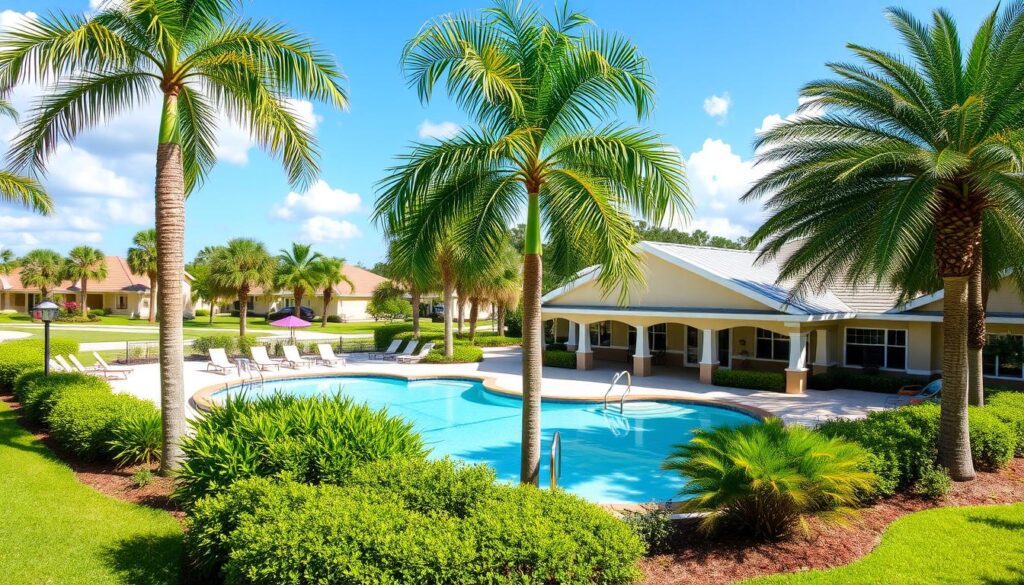
Property and General Liability Coverage
Property and general liability coverage is a fundamental component of HOA insurance. Property insurance protects the physical assets of the HOA, such as common areas, buildings, and amenities, against damage or loss. General liability insurance guards against claims for bodily injury or property damage caused by the HOA’s operations or activities.
Directors and Officers (D&O) Insurance
D&O insurance protects the volunteer board members of the HOA from personal liability arising from their decisions and actions while serving the association. This coverage is crucial for attracting and retaining qualified individuals to serve on the HOA board.
Fidelity Bond and Crime Insurance
Fidelity bond and crime insurance safeguards the HOA’s finances against theft, fraud, and dishonesty by employees, board members, or contractors. This type of insurance is essential for preventing financial losses due to criminal acts.
Additional Coverage Options for Florida HOAs
Florida HOAs should also consider additional coverage options, such as workers’ compensation, cyber liability, and umbrella policies. These policies can provide additional protection against various risks and enhance the overall insurance portfolio.
In conclusion, a comprehensive insurance plan for Florida HOAs includes property and general liability coverage, D&O insurance, fidelity bond and crime insurance, and other additional coverage options. By understanding the different types of insurance available, HOAs can create a robust protection plan that safeguards their assets and members.
Florida-Specific HOA Insurance Requirements
Florida condominium associations face unique challenges in meeting the statutory requirements for HOA insurance. The Florida Statute 718 governs the insurance requirements for condominium associations, mandating that they insure for full replacement cost.
Statutory Requirements for Florida Condominiums
Per Statute 718, associations are required to insure for full replacement cost, which can be challenging for older buildings, buildings located near the coast, and those with outdated infrastructure. This requirement is critical to ensure that the association can rebuild or repair the property in the event of a disaster.
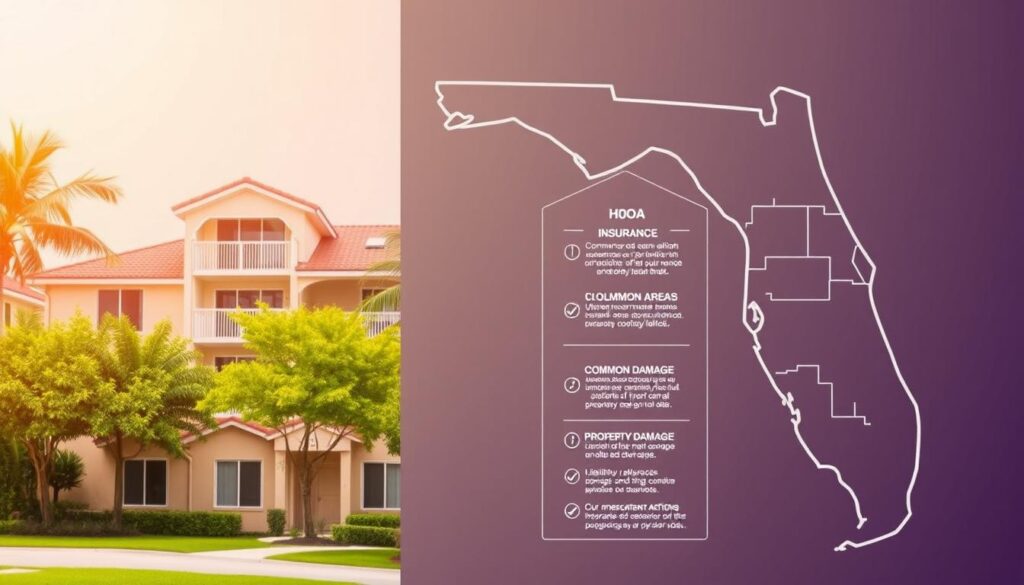
Coverage Limits and Deductibles
Florida law also impacts the coverage limits and deductibles for HOA insurance policies. The crime policy must reflect all the money in the association’s bank account, including reserves, standard funds, and other cash on hand. This requirement ensures that the association is protected against potential losses due to crime.
The coverage limits must be carefully managed to ensure that the association has adequate protection without over-insuring. The deductibles should be set at a level that is manageable for the association, while also ensuring that the insurance coverage is not compromised.
Factors Affecting Your HOA Insurance Costs in Florida
Understanding the factors that influence HOA insurance costs in Florida is crucial for homeowners associations to manage their expenses effectively. Several elements can impact the cost of hoa insurance florida, and being aware of these can help HOAs make informed decisions about their insurance coverage.
Location and Property Characteristics
The location and characteristics of a property significantly impact its insurance costs. For instance, HOAs in coastal areas are likely to face higher premiums due to the increased risk of damage from hurricanes and flooding. 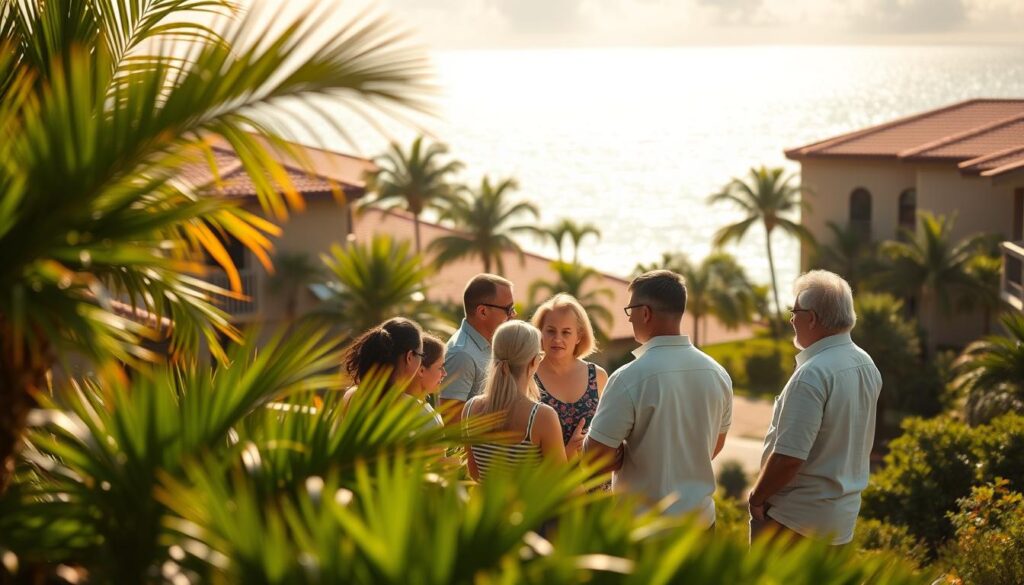 The type of common areas and amenities within the community also play a role in determining insurance costs, as more extensive or luxurious amenities may increase the overall value of the property that needs to be insured.
The type of common areas and amenities within the community also play a role in determining insurance costs, as more extensive or luxurious amenities may increase the overall value of the property that needs to be insured.
Building Age and Construction Type
The age and construction type of buildings within an HOA community are critical factors in insurance pricing. Older buildings, particularly those from the 1960s and 1970s, are often more challenging to insure than newer constructions. Similarly, frame construction in Florida is considered higher risk and may result in higher premiums. Ensuring that buildings are updated and well-maintained can help mitigate some of these risks.
Claims History and Risk Management Practices
An HOA’s claims history and risk management practices also significantly affect insurance costs. Communities with a history of frequent claims may be viewed as higher risk by insurance providers, leading to increased premiums. Implementing robust risk management practices can help reduce the likelihood of claims and potentially lower insurance costs over time.
How to Select the Right HOA Insurance Provider in Florida
As a Florida HOA board member, selecting the right insurance provider is one of your most critical decisions. The Florida HOA insurance market is complex, and finding the best provider requires careful consideration.
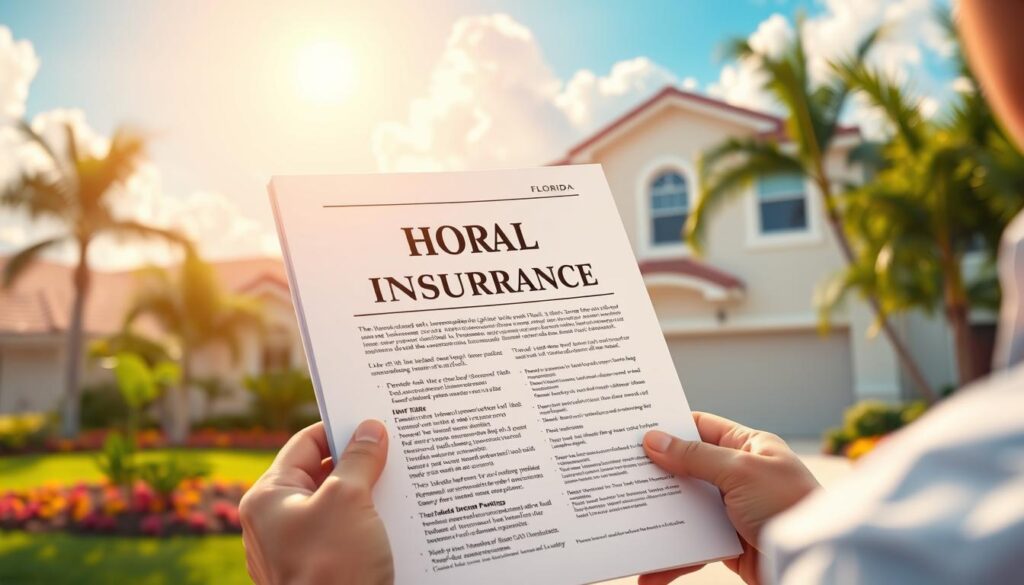
Working with Specialized HOA Insurance Agents
It’s crucial to work with insurance agents who specialize in HOA coverage and understand Florida’s unique insurance landscape. A knowledgeable agent can provide a detailed breakdown of your insurance policy, helping you understand your coverage and identify potential gaps.
Agents specializing in HOA insurance can navigate the complexities of Florida’s insurance requirements, ensuring your association complies with all regulations.
Evaluating Insurance Providers and Policies
When evaluating potential insurance providers, consider their financial stability, claims handling reputation, and experience with Florida HOAs. Compare insurance policies beyond just price, focusing on coverage details, exclusions, and limitations.
Obtaining multiple quotes and having policies reviewed by knowledgeable professionals can help ensure you’re getting the right coverage for your HOA’s needs. Board members should ask potential providers questions about their policies and assess their responsiveness during the claims process.
Conclusion: Protecting Your Florida HOA Community
In conclusion, securing the right HOA insurance is vital for Florida homeowners associations to mitigate risks and ensure their financial well-being. Comprehensive insurance coverage tailored to each community’s specific needs is crucial. Regular policy reviews are essential to keep pace with changing property values and community needs.
HOA board members should stay informed about Florida’s evolving insurance market and regulations. Working with knowledgeable insurance professionals who specialize in Florida HOA coverage is highly beneficial. While insurance costs are significant, the potential financial consequences of inadequate coverage are far greater.
